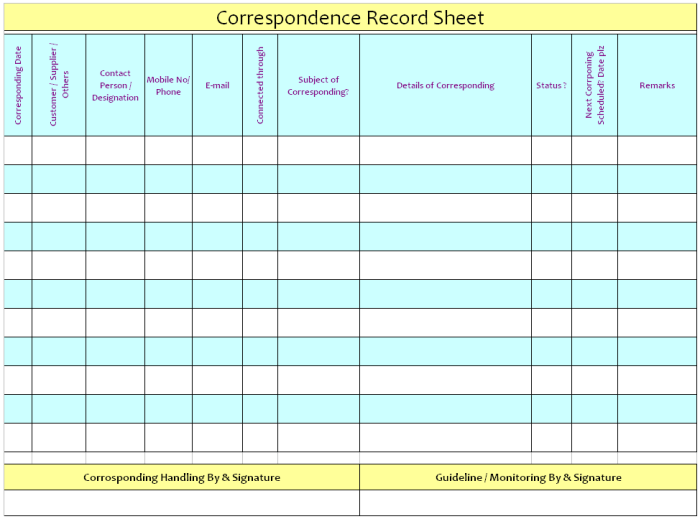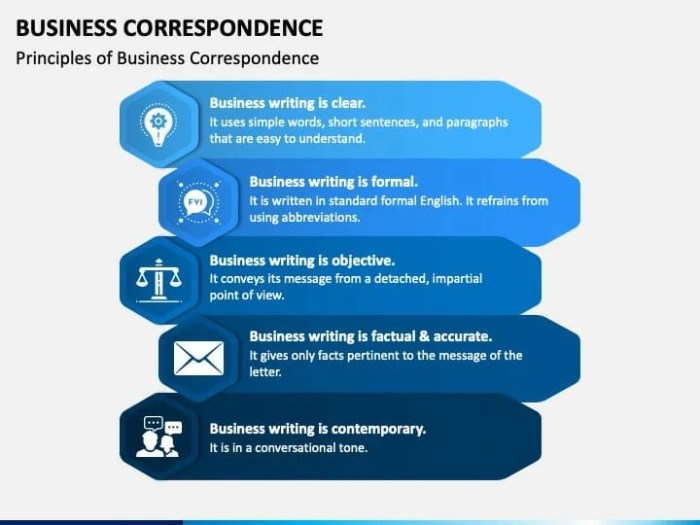Tweets and Facebook posts can be forms of business correspondence, a concept that has gained increasing recognition in recent times. The evolution of social media platforms has transformed the landscape of business communication, and these platforms now serve as viable channels for professional interactions.
As businesses embrace the digital age, it becomes imperative to understand the characteristics of effective social media communication. Crafting professional and engaging content on platforms like Twitter and Facebook requires careful consideration of tone, language, and audience. Ethical considerations and legal implications also come into play, emphasizing the need for responsible and compliant social media usage.
Definition of Business Correspondence

Business correspondence refers to written or electronic communication used in professional settings to convey information, facilitate transactions, and build relationships. Traditional forms of business correspondence include letters, memos, emails, and reports.
Evolution of Business Correspondence: Tweets And Facebook Posts Can Be Forms Of Business Correspondence

With the advent of social media platforms, tweets and Facebook posts have emerged as additional channels for business communication. These platforms provide businesses with new opportunities to connect with customers, share updates, and promote their products or services.
Characteristics of Effective Business Tweets and Facebook Posts
Effective business tweets and Facebook posts are:
- Clear and concise:Communicate key messages in a concise and easily understandable manner.
- Professional and respectful:Maintain a professional tone and avoid offensive or inflammatory language.
- Relevant and engaging:Share content that is relevant to the target audience and encourages engagement.
- Visually appealing:Use images, videos, or other visual elements to enhance the post’s impact.
- Action-oriented:Include a clear call-to-action, such as visiting a website or making a purchase.
Ethical Considerations in Social Media Business Correspondence

When using social media for business purposes, it is essential to consider ethical implications:
- Honesty and transparency:Avoid misleading or deceptive content, and clearly disclose any affiliations or biases.
- Respect for privacy:Respect the privacy of individuals and do not share personal information without their consent.
- Responsibility:Be responsible for the content posted and ensure that it aligns with the company’s values and policies.
Legal Implications of Social Media Business Correspondence
Social media communication can have legal implications:
- Compliance with laws and regulations:Ensure compliance with relevant laws and regulations, such as data protection laws and copyright laws.
- Liability for defamatory or misleading content:Businesses can be held liable for defamatory or misleading content posted on their social media accounts.
- Protection of intellectual property:Protect the company’s intellectual property by using appropriate copyright and trademark protections.
Integration of Social Media into Business Communication Strategies
To integrate social media into business communication strategies:
- Define objectives:Establish clear objectives for using social media, such as enhancing customer engagement or generating leads.
- Identify target audience:Determine the target audience for social media content and tailor content accordingly.
- Develop a content calendar:Plan and schedule social media content to ensure regular and consistent engagement.
- Monitor and analyze results:Track and analyze social media performance to identify areas for improvement and measure the effectiveness of campaigns.
Best Practices for Managing Social Media Business Correspondence

Best practices for managing social media business correspondence include:
- Establish clear guidelines:Develop clear guidelines for employees on the use of social media for business purposes.
- Monitor social media activity:Regularly monitor social media accounts to identify and respond to customer inquiries and feedback.
- Respond promptly and professionally:Respond to all inquiries and comments in a timely and professional manner.
- Archive social media interactions:Archive social media interactions for compliance and record-keeping purposes.
Questions Often Asked
Can tweets and Facebook posts be legally binding?
Yes, in certain circumstances, tweets and Facebook posts can be considered legally binding contracts or agreements, particularly if they meet specific criteria, such as offer, acceptance, and consideration.
What are the ethical considerations for using social media for business?
Businesses must adhere to ethical principles when using social media for business purposes, including respecting privacy, avoiding deceptive or misleading content, and maintaining transparency in their communications.
How can businesses integrate social media into their overall communication strategies?
Integrating social media into communication strategies involves aligning social media content with business goals, establishing clear roles and responsibilities for social media management, and monitoring and evaluating the effectiveness of social media campaigns.